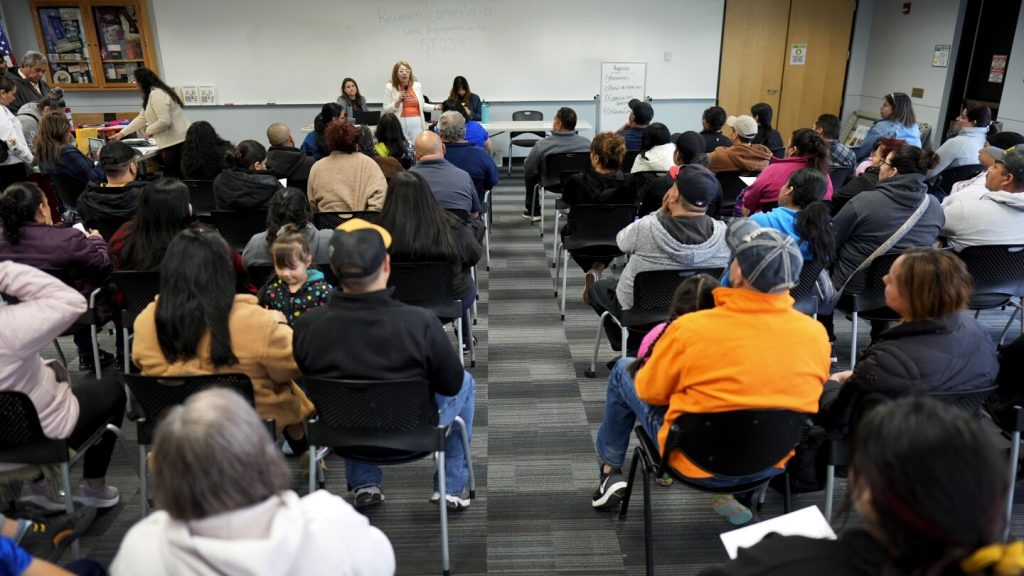Immigration legislation in Iowa is causing anxiety among immigrant communities as the state moves forward with a bill that would allow for the arrest and deportation of certain migrants. The bill, expected to be signed by Governor Kim Reynolds, would make it a state crime for individuals to be in Iowa if they were previously denied admission to or removed from the United States. Latino and immigrant community groups across Iowa are organizing meetings and providing information to address people’s concerns about the new legislation.
Organizations like the Iowa Migrant Movement for Justice are working to bridge the gap between law enforcement and immigrant communities, aiming to maintain trust and provide support. Des Moines Police Chief Dana Wingert emphasized that immigration status does not influence police work in keeping the community safe. Republican leaders in Iowa and across the country have supported the legislation, citing concerns about federal immigration enforcement. The bill’s sponsors argue that Iowa has the right and obligation to protect its citizens and sovereignty.
Similar to a Texas law currently blocked in court, the Iowa legislation could lead to criminal charges for individuals with deportation orders or who have been previously removed from the United States. Once in custody, migrants may face the choice of voluntarily leaving the U.S. or facing prosecution. However, questions remain about the practical implementation and enforcement of the law, including challenges related to deportation processes, international relations, and communication with other countries. Mexico has already stated its refusal to cooperate with state or local enforcement of immigration laws.
Law enforcement agencies in Iowa have refrained from commenting on the bill until it becomes law, with many emphasizing their focus on community relations and public safety. Immigrant communities in Iowa, including those in rural areas, have mobilized in response to the legislation, emphasizing the human aspect of immigration and the essential role of immigrant labor in industries like meatpacking, agriculture, and construction. Community leaders like Manny Galvez have spoken out against the criminalization of immigrants and have vowed to continue advocating for their rights and protection.
As the debate over the bill continues, organizers and advocates are working to address community concerns, provide resources, and maintain dialogue with law enforcement to navigate the potential impacts of the legislation. The bill’s passage could have far-reaching consequences for immigrant communities in Iowa, as well as implications for law enforcement practices and relationships with federal authorities. Despite the uncertainties and challenges ahead, immigrant advocates remain committed to supporting and defending the rights of all individuals, regardless of their immigration status.















